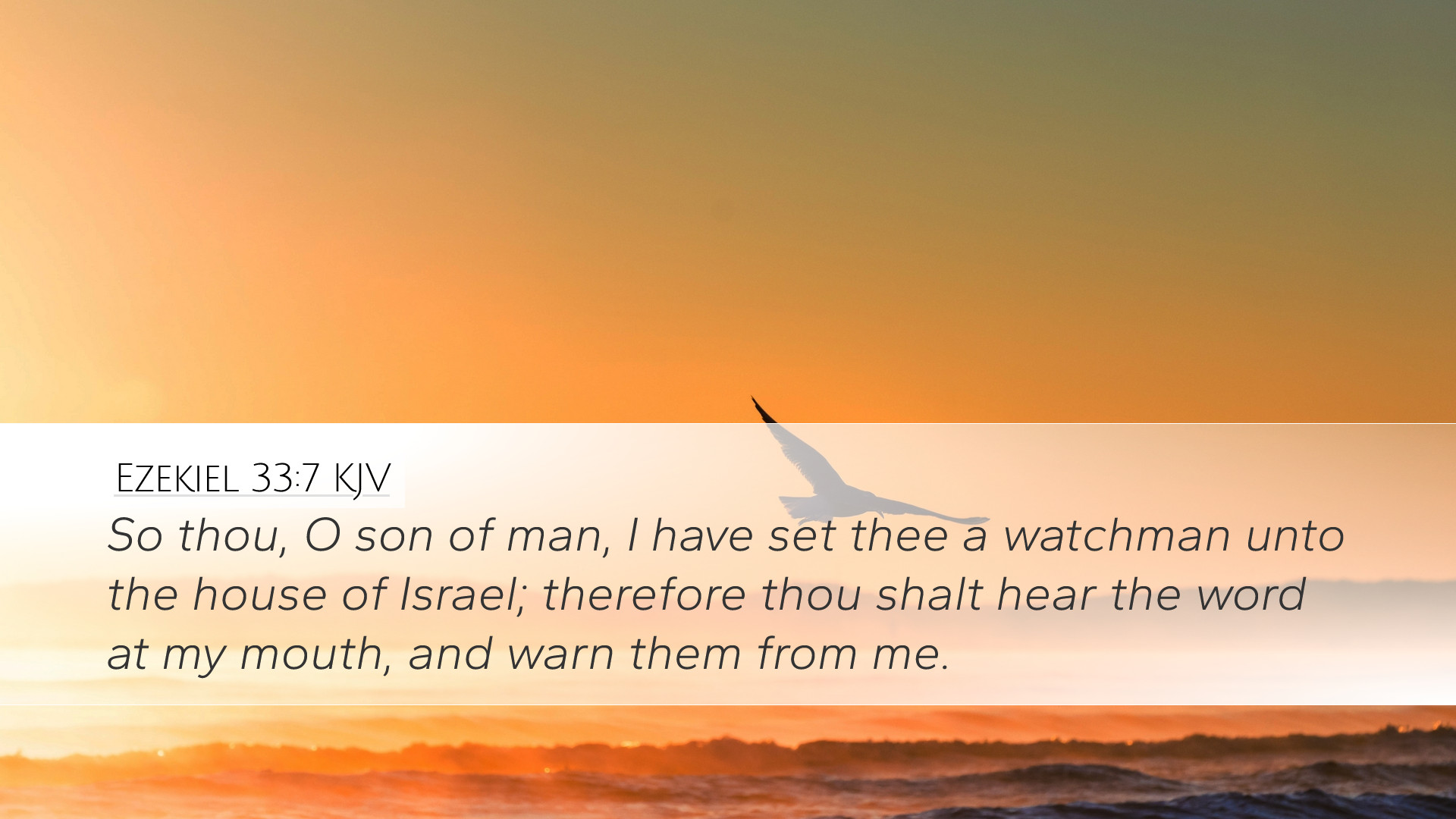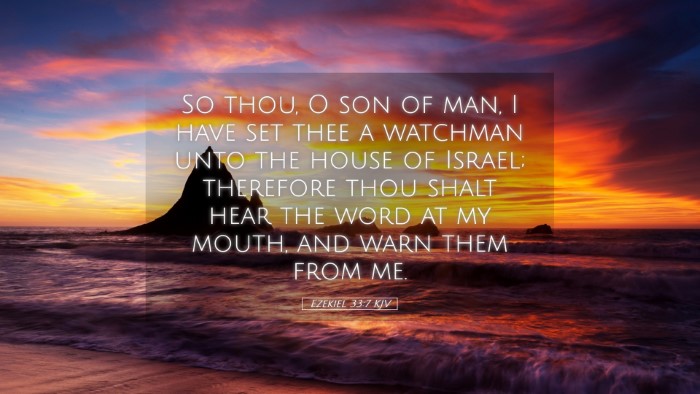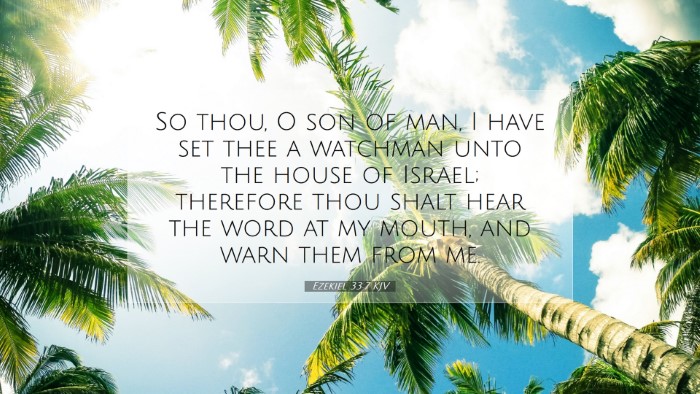Bible Commentary on Ezekiel 33:7
Ezekiel 33:7 (KJV): "So thou, O son of man, I have set thee a watchman unto the house of Israel; therefore thou shalt hear the word at my mouth, and warn them from me."
Introduction
The book of Ezekiel is a profound text with rich prophetic insights, addressing the spiritual and moral condition of Israel. In Ezekiel 33:7, the concept of the watchman is introduced, signifying a pivotal role that the prophet must undertake for the people.
Role of the Watchman
Matthew Henry's Commentary highlights the significance of the watchman in ancient Israel. The watchman was a sentinel tasked with vigilance over the city and its inhabitants. This role is crucial, as it represents not only physical safeguarding but spiritual oversight.
- Divine Appointment: Henry emphasizes that Ezekiel's designation as a watchman is a result of divine calling. God chooses individuals to communicate His messages to the people, emphasizing the importance of obedience and accountability.
- Awareness of Threat: The watchman's duty is to remain alert to dangers, signaling when peril approaches. This prophetic alertness is not passive; it requires active engagement with God's word.
Prophetic Responsibility
Albert Barnes' Notes on the Bible elaborates on the responsibility held by the prophet:
- Hearing from God: The watchman must "hear the word" from God, indicating a profound relationship between the prophet and the Divine. It is not sufficient to interpret the times; the watchman must be intimately connected with God's truths.
- Warning the People: This verse underscores the urgency in prophetic warnings. The watchman must communicate God's message clearly and without delay, embodying both grace and truth.
Theological Implications
Adam Clarke's Commentary delves into the theological implications of this prophetic mandate:
- Intercession and Advocacy: Clarke asserts that the watchman's role extends beyond mere warning; it is also one of intercessory prayer and advocacy for the people, highlighting a deep love for their spiritual condition.
- Accountability of the Watchman: There is a weight of responsibility on the watchman. Clarke notes that failure to proclaim the divine warnings can lead to dire consequences, not only for the people but for the watchman himself.
Practical Application for Today’s Believers
The concept of the watchman is not confined to Ezekiel's time; it resonates profoundly in contemporary Christian life:
- Pastoral Ministry: Pastors and church leaders are modern-day watchmen, called to uphold the truth of the Gospel and shepherd their congregations with wisdom and care.
- Personal Responsibility: Every believer is called to be a watchman in their spheres of influence, sounding the alarm against spiritual complacency and encouraging others towards righteousness.
- Community Engagement: Engaging in community issues and helping others understand the moral imperatives found in Scripture translates the watchman's role into action, fostering a culture of accountability and faithfulness.
Conclusion
Ezekiel 33:7 presents a profound charge to both the prophet and, by extension, every believer. The call to be a watchman involves active listening to God's word, unwavering commitment to sharing that truth, and a deep awareness of our responsibility to others. As we reflect on this biblical mandate, may we all strive to fulfill our roles as vigilant guardians of faith, prepared to share God's message of hope and warning in a world that desperately needs His guidance.


